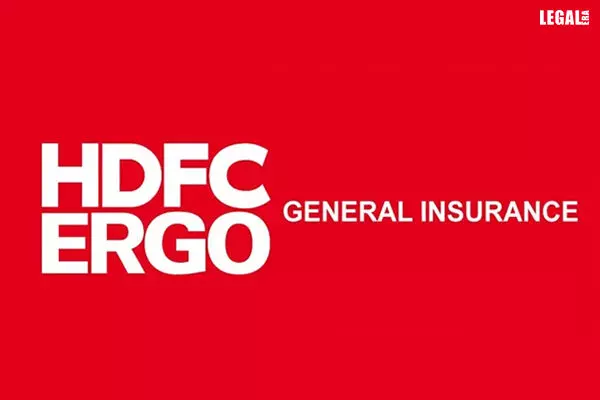- Home
- News
- Articles+
- Aerospace
- Agriculture
- Alternate Dispute Resolution
- Banking and Finance
- Bankruptcy
- Book Review
- Bribery & Corruption
- Commercial Litigation
- Competition Law
- Conference Reports
- Consumer Products
- Contract
- Corporate Governance
- Corporate Law
- Covid-19
- Cryptocurrency
- Cybersecurity
- Data Protection
- Defence
- Digital Economy
- E-commerce
- Employment Law
- Energy and Natural Resources
- Entertainment and Sports Law
- Environmental Law
- FDI
- Food and Beverage
- Health Care
- IBC Diaries
- Insurance Law
- Intellectual Property
- International Law
- Know the Law
- Labour Laws
- Litigation
- Litigation Funding
- Manufacturing
- Mergers & Acquisitions
- NFTs
- Privacy
- Private Equity
- Project Finance
- Real Estate
- Risk and Compliance
- Technology Media and Telecom
- Tributes
- Zoom In
- Take On Board
- In Focus
- Law & Policy and Regulation
- IP & Tech Era
- Viewpoint
- Arbitration & Mediation
- Tax
- Student Corner
- AI
- ESG
- Gaming
- Inclusion & Diversity
- Law Firms
- In-House
- Rankings
- E-Magazine
- Legal Era TV
- Events
- News
- Articles
- Aerospace
- Agriculture
- Alternate Dispute Resolution
- Banking and Finance
- Bankruptcy
- Book Review
- Bribery & Corruption
- Commercial Litigation
- Competition Law
- Conference Reports
- Consumer Products
- Contract
- Corporate Governance
- Corporate Law
- Covid-19
- Cryptocurrency
- Cybersecurity
- Data Protection
- Defence
- Digital Economy
- E-commerce
- Employment Law
- Energy and Natural Resources
- Entertainment and Sports Law
- Environmental Law
- FDI
- Food and Beverage
- Health Care
- IBC Diaries
- Insurance Law
- Intellectual Property
- International Law
- Know the Law
- Labour Laws
- Litigation
- Litigation Funding
- Manufacturing
- Mergers & Acquisitions
- NFTs
- Privacy
- Private Equity
- Project Finance
- Real Estate
- Risk and Compliance
- Technology Media and Telecom
- Tributes
- Zoom In
- Take On Board
- In Focus
- Law & Policy and Regulation
- IP & Tech Era
- Viewpoint
- Arbitration & Mediation
- Tax
- Student Corner
- AI
- ESG
- Gaming
- Inclusion & Diversity
- Law Firms
- In-House
- Rankings
- E-Magazine
- Legal Era TV
- Events
Chandigarh Consumer Commission Holds HDFC ERGO Liable for Wrongfully Denying Claim

Chandigarh Consumer Commission Holds HDFC ERGO Liable for Wrongfully Denying Claim
The District Consumer Disputes Redressal Commission-I, Union Territory Chandigarh bench, comprising President Pawanjit Singh, Surjeet Kaur, and Member Suresh Kumar Sardana, both Members, ruled against HDFC ERGO General Insurance Company for wrongfully denying a claim filed by the wife, as the nominee, of her deceased husband, who died in a road accident.
The Insurance Company's claim that the husband was under the influence of alcohol during the accident was dismissed as irrelevant to the factual situation.
The deceased Pramod Kumar held a Personal Accidental Death Policy with HDFC ERGO General Insurance Company (Insurance Company). Following a motorcycle accident in which he was a pillion rider, Kumar suffered eight days of hospitalisation before passing away. Rubi Rani (Complainant), Kumar's widow and the policy nominee, filed a claim with the Insurance Company, providing all necessary documentation, including an FIR regarding the accident.
The Insurance Company, however, repudiated the claim, citing the deceased's alleged alcohol consumption at the time of the accident. Undeterred, the Complainant, alongside her minor children, filed a consumer complaint with the District Consumer Disputes Redressal Commission-I, U.T. Chandigarh (District Commission), contesting the lack of substantial evidence to support the claim of alcohol consumption.
The Insurance Company's contention rested upon the deceased husband's medical record, alleging that the patient exhibited an odour of alcohol immediately following the accident. Additionally, the Insurance Company raised preliminary objections regarding the maintainability of the claim, alleging concealment of facts and a lack of jurisdiction.
The District Commission meticulously examined the details of the accident and concluded that the deceased husband's demise was not attributable to any negligence or alcohol consumption on his part; instead, it was the reckless and negligent driving of an unidentified vehicle that fled the scene after the incident that caused the fatality. Furthermore, the Insurance Company failed to substantiate its claim of alcohol consumption by the deceased.
The District Commission acknowledged the policy's exclusion clause barring coverage for injuries or illnesses sustained while under the influence of alcohol or drugs. However, the Commission observed that the accident itself bore no relation to the deceased's possible alcohol consumption, rendering the exclusion clause inapplicable to the circumstances of this incident.
Recognising the Insurance Company's unjustified denial of the Complainants' claim based on unsubstantiated allegations of alcohol consumption, the District Commission deemed this refusal a clear instance of deficiency in service. It mandated the Insurance Company to compensate the Complainants with the full insurance coverage amount of ₹27,75,000, along with interest accrued at the annual rate of 9 per cent from the date of the initial claim's rejection.
Furthermore, the District Commission awarded ₹30,000 as compensation for the mental anguish and harassment experienced by the Complainants, along with an additional ₹10,000 to cover litigation costs. The District Commission specified that the compensation should be distributed as follows: ₹5,00,000 to each of the three minor children and the remaining amount to the Complainant's widow.



